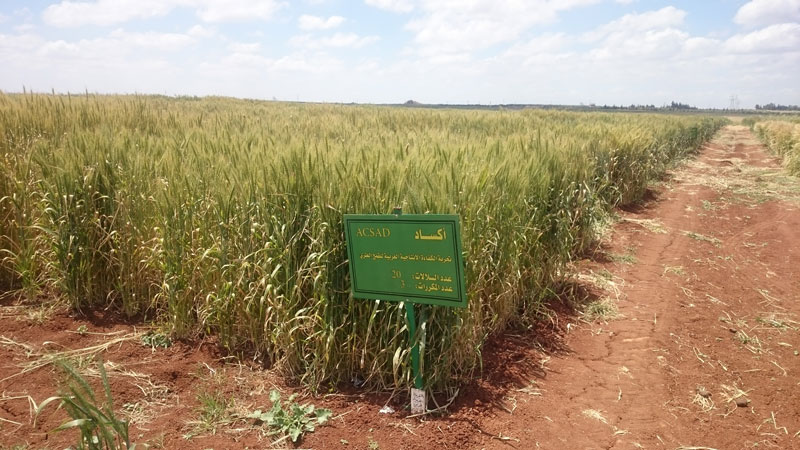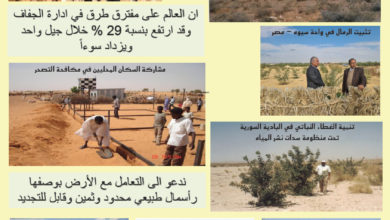Mauritania is approving 40 new varieties of ACSAD from durum, bread wheat, and barley with high productivity.
Dr. Nasr Edin Obaid, Director-General of Arab Center for the Studies of Arid Zones and Drylands (ACSAD), declared that Mauritania approved 40 new varieties of wheat and barley (10 durum wheat, 16 bread wheat, and 14 barley originated in the Arab Center Organization ACSAD).
In a statement, Dr. Nasr Edin Obaid noted that the results of field experiments and observations at the Kehidi Research Station of the Mauritanian Ministry of Rural Development, and in farmers’ fields, for this season and the past seasons, have shown that these new varieties have of high productivity and excellent quality of seeds. They are characterized by early ripening, tolerance to drought stresses, and climate changes, especially high temperatures, and their suitability for arid regions, with an average yield was 3 tons/ha for durum wheat, 3.5 tons/ha for bread wheat, and 2 tons/ha for barley, outperforming the control with a rate ranging between 14.63% to 233.30%.
The new varieties of durum wheat, bread wheat, and barley are distinguished by their resistance to diseases, especially rust, in addition to their high technical specifications and the high specific weight of grains, indicating that laboratory experiments showed that their percentage of protein ranged between 11% to 14%, making them excellent varieties for the food industries which depends on cereal crops.
Dr. Nasr Edin Obeid explained that the Arab Center organization (ACSAD) paid special attention to cereal production in the Arab countries, especially wheat and barley, through the cereals program, which considered as one of the most important programs implemented by the organization for its direct relation to the agricultural development and food security process in the Arab world.
He emphasized that the program of breeding wheat and barley in ACSAD works at the level of all Arab countries, in which the environmental factors varied from country to another, or within one country and that the program of improving wheat in ACSAD depends on forming a broad genetic base that is compatible with different Arab environments and takes into account the conditions of each country. He noted that ACSAD experts subject the approved varieties to many experiments, making them more resistant to environmental stresses in all climatic conditions.




